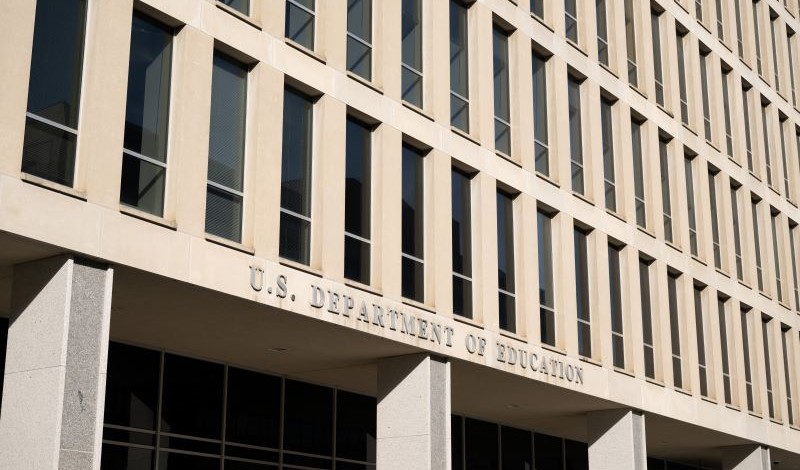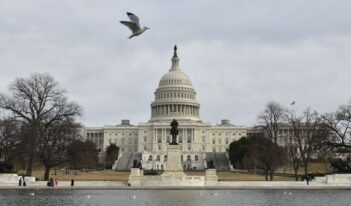
Courts address limits of state and local control over school curriculum.
States and local school boards control and regulate public schools. According to the U.S. Constitution’s 10th Amendment, “the powers not delegated to the United States by the Constitution… are reserved to the States respectively.” In fact, the Constitution is silent on education. To this end, in Brown v. Board of Education, the U.S. Supreme Court observed that “today, education is perhaps the most important function of state and local governments.” As a result, state constitutions often include language granting their legislatures the authority to delegate the governance of public schools to state and local school boards.
The Constitution’s silence on education notwithstanding, the federal government still plays a role in regulating public schools, albeit limited, by choosing to fund particular education-related initiatives such as the Individuals with Disabilities Education Act and the Every Student Succeeds Act (ESSA). Moreover, as much authority as states enjoy over education in curricular matters, courts can intervene, as in Brown, to ensure that all students receive equal protection of laws under the 14th Amendment, along with such rights as to due process when being disciplined, and access to educational programming.
By way of illustration on curricular issues, when Arizona enacted a statute in 2010 prohibiting ethnic studies programs in schools, some teachers, parents, and students challenged the statute on First and 14th Amendment grounds. This law was enacted in response to a Mexican–American studies program in Tucson, Arizona, schools, which taught students—most of whom were of Mexican or Hispanic descent—about their cultural heritages.
The U.S. Court of Appeals for the Ninth Circuit found that a section of the Arizona law prohibiting courses designed primarily for students of particular ethnic groups was facially overbroad and impermissible but that the rest of the law could be enforced.
Subsequently, a federal trial court held that the law’s other provisions were not explicitly discriminatory but did violate the First and 14th Amendments because the state officials who enacted and enforced the law acted with impermissible racial animus when attempting to close the Tucson school board’s Mexican–American studies program. This case provides an example of a state legislature having control of public schools’ curricula but, at the same time, demonstrates that there can be limitations if federal constitutional rights are impaired.
More recently, families, teachers, and advocacy groups challenged Florida’s Parental Rights in Education law or so-called “Don’t Say Gay” law. This law prohibited classroom discussions about sexual orientation or gender identity. The plaintiffs argued that because the law was vague, overbroad, and discriminatory, it violated their rights. The parties eventually reached a settlement agreement in 2024, which clarified the law’s scope. The agreement provided that school libraries could house books about LGBTQ+ characters and that schools could reinstate anti-bullying programs covering LGBTQ+ students. Although the settlement left the constitutional claims against the Florida law unaddressed, it allayed some of the chilling effects that the plaintiffs feared.
As far-reaching as the authority of state legislatures and education departments over curricular content is, these state bodies typically delegate considerable discretion to local school boards over such matters. Curricular decisions by school boards have also been challenged on occasion. For instance, after the 2017 “Unite the Right” rally in Charlottesville, Virginia, the local school board adopted anti-racism curricular content that commits its public schools to establishing a school community that shares collective responsibility to address racism in schools. Five families sued the board under the Constitution of Virginia and a Virginia statute, arguing unsuccessfully that the policy indoctrinated students based on racial ideology.
Upholding the dismissal of the claim, a state appellate court decided that teaching about the history of racism and its current structures does not result in discrimination against white people. The court held that parents “do not have a due process right to veto aspects of curriculum that challenge or conflict with their ideology or worldview.” As for the plaintiffs’ racial discrimination claim, the court held that teaching students about the history of racism, and its current structural and moral dimensions, does not discriminate against white people. The Supreme Court of Virginia declined to hear the appellate court’s decision.
Other parents have challenged local school board curricula. In fact, the U.S. Supreme Court will soon address a parental challenge to a language arts program that includes LGBTQ+ inclusive books. At issue before the Court is whether parents can opt their children out of having to read certain books because of the parents’ religious concerns.
Commenting on parental control of curriculum in public schools, Ira C. Lupu, a constitutional law professor at George Washington University Law School, explained:
No individual, progressive or conservative, has a claim of legal right to impose their preferred version of the public-school curriculum on other, dissenting parents and children. Parents who want increased attention to racial history and equity, or more resources for students wrestling with issues of sex and gender, are on the same political plane as those who want to move in the opposite direction. To prevail, each side must win the struggle for political control of state and local offices that have authority to set curriculum.
Lupu’s sentiments align with the Supreme Court’s reasoning in a 1976 decision upholding a challenge to racially discriminatory admissions practices in public schools. The Court rejected “the contention that parents may replace state educational requirements with their own idiosyncratic views of what knowledge a child needs to be a productive and happy member of society.”
Advocacy groups, parents, and perhaps even the federal government will likely continue to raise judicial challenges to states’ and local school boards’ curricular decisions.
A different kind of challenge to state and local curricular came in January when President Donald J. Trump issued an executive order addressing public school curricular matters and other issues. The executive order requests that agency heads develop plans to ensure that K-12 curriculum and instruction do not promote “gender ideology” or “discriminatory equity ideology,” and bolsters parental rights. The order also reestablishes the 1776 Commission to promote patriotic education.
This executive order may invite litigation from states that argue that they have authority over curricular matters. According to some observers, the order may violate the ESSA, which prohibits the federal government from “mandating, directing, or controlling” a state or local school board’s “instructional content” or “curriculum.”
Because the ESSA and other federal statutes protect state control over public school curricula, it remains to be seen whether President Trump’s executive order can survive judicial scrutiny or if state control over education will retain its primacy.





